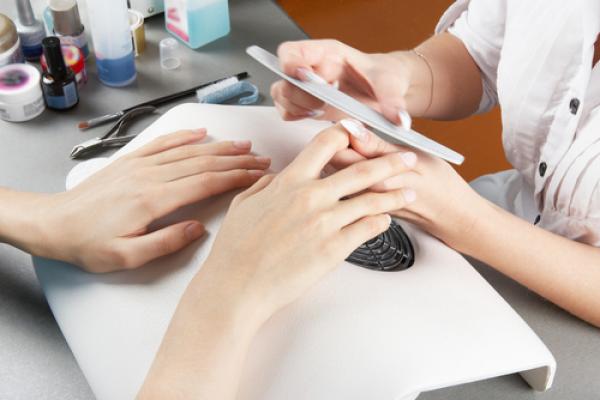I was groomed in a Latino home where nail salons were viewed as rites of passage for becoming a senorita — growing young lady. Sometimes when I’m looking for some TLC, I head to my local nail salon in East Harlem. I could go to a more upscale salon, but here at Pretty Nail Salon, is where I want to be — connected to a neighborhood of ladies who have utilized storefront nail salons, beauty parlors, and hair-braiding places as makeshift therapeutic spaces where counsel and support is just as paramount to looking beautiful.
I have also discovered that nail salons are burgeoning places of policy concerns. Pretty Nail Salon has provided me with an informal education on how social policy affects the everyday day lives of working class folks. Our presidential candidates could also benefit from an appointment at Pretty Nail Salon, to listen to the local narratives and deepen their understanding of how social policy is affecting the lives of the urban poor and working class.
On Tuesday, as I was drying my “rocker grey” colored toenails — I hear it’s the “in” color — there were two ladies chatting about health insurance. One woman discussed how she was claiming to be the spouse of her boyfriend, so that she could benefit from his health insurance plan. Although she had two jobs (selling designer bags from her home and cleaning houses), she had no medical insurance. The younger women shared that she had been living with a friend because finding housing with her Section 8 voucher was impossible in Manhattan, and she didn’t want to move to the Bronx because her daughter would have to transfer to a poorly performing, overcrowded public school.
Just as I was about to leave, a tall African-American male came in with a garbage bag, soliciting “Mace for the Face.” Apparently he was selling boxes of Newport cigarettes and Mace for protection. Unfortunately, I had already completed my mace and cigarette purchases for the week — but seriously if I did smoke and use mace, he would be my guy. Forefront policy issues in action at Pretty Nail Salon:
- “What is considered a livable wage?”
- “How do we address the high unemployment that is plaguing so many of our working class communities?”
- ”Should healthcare be a human right?”
- “Does the right to an education include a learning environment where children can be equally prepared as those who live in a community with a stronger property tax base?
- “What impact does the increasing gentrification of neighborhoods and privatization of land have on housing for the poor and working class?”
- “What is occurring structurally within the labor market and prison industrial complex that so many African-American and Latino men are relegated to underground employment?”
These questions are not formulated with the intent of negating the responsibility of the individual, but rather to inquire what is our communal responsibility to create and advocate for systems/structures that give voice to the needs and concerns of the least of these?
And there it was another experience to spark the prophetic imaginations of God’s people on why social welfare policy matters. Since the biblical times of Micah, Isaiah, and Amos, social welfare policies have existed as divine safeguards against the deprave tendencies of humanity, who time and time again will violate God’s desire for the collaborative sanctity of His justice and love.
And to think that it all came from Pretty Nail Salon, an institution where a wealth of policy experts, teach me, provoke me to live with greater awareness and to be an advocate for policy changes in East Harlem. And to our Presidential candidates, did I mention that Pretty Nail Salon is tuition free, and that Cindy does a great manicure?
Dr. Mayra Lopez-Humphreys, part of the Emerging Voices Project, is a native New Yorker, professor, and pastor with more than 16 years of community engagement. She is also the associate pastor at Metro Hope Covenant Church, a multiethnic church that meets in Harlem’s historic National Black Theater.
Manicure, Galina Mikhalishina / Shuttersock.com
Got something to say about what you're reading? We value your feedback!
